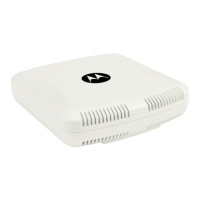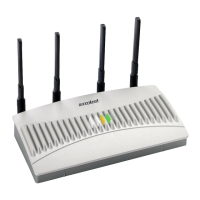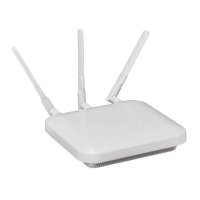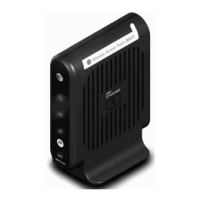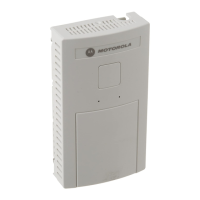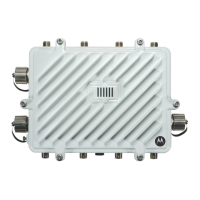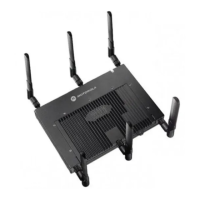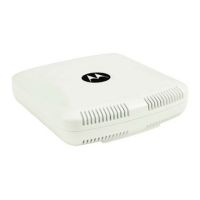13 - 84 WiNG 5.6 Access Point System Reference Guide
4. Refer to the Connection Status field.
The Connection Status table lists the MAC address, SID, Service information MTU and status of each route destination
peer. To provide this point-to-point connection, each PPPoE session learns the Ethernet address of a remote PPPoE client,
and establishes a session. PPPoE uses both a discover and session phase to identify a client and establish a point-to-point
connection. By using such a connection, a Wireless WAN failover is available to maintain seamless network access if the
access point’s Wired WAN were to fail.
5. Select the Refresh button to update the screen’s statistics counters to their latest values.
13.3.14 OSPF
Access Point Statistics
Open Shortest Path First (OSPF) is a link-state interior gateway protocol (IGP). OSPF routes IP packets within a single routing
domain (autonomous system), like an enterprise LAN. OSPF gathers link state information from neighbor routers and constructs
a network topology. The topology determines the routing table presented to the Internet Layer which makes routing decisions
based solely on the destination IP address found in IP packets.
Refer to the following for detailed descriptions of the tabs available within the OSPF statistics screen:
• OSPF Summary
• OSPF Neighbors
• OSPF Area Details
• OSPF Route Statistics
• OSPF Route Statistics
• OSPF State
Authentication Type Lists authentication type used by the PPPoE client whose credentials must be shared by its
peer access point. Supported authentication options include None, PAP, CHAP, MSCHAP, and
MSCHAP-v2.
Username Displays the 64 character maximum username used for authentication support by the PPPoE
client.
Password Displays the 64 character maximum password used for authentication by the PPPoE client.
Client Idle Timeout The access point uses the listed timeout so it does not sit idle waiting for input from the PPPoE
client and the server, that may never come.
Keep Alive If a keep alive is utilized, the point-to-point connect to the PPPoE client is continuously
maintained and not timed out.
Maximum
Transmission Unit
(MTU)
Displays the PPPoE client maximum transmission unit (MTU) from 500 - 1,492. The MTU is the
largest physical packet size in bytes a network can transmit. Any messages larger than the
MTU are divided into smaller packets before being sent. A PPPoE client should be able to
maintain its point-to-point connection for this defined MTU size.

